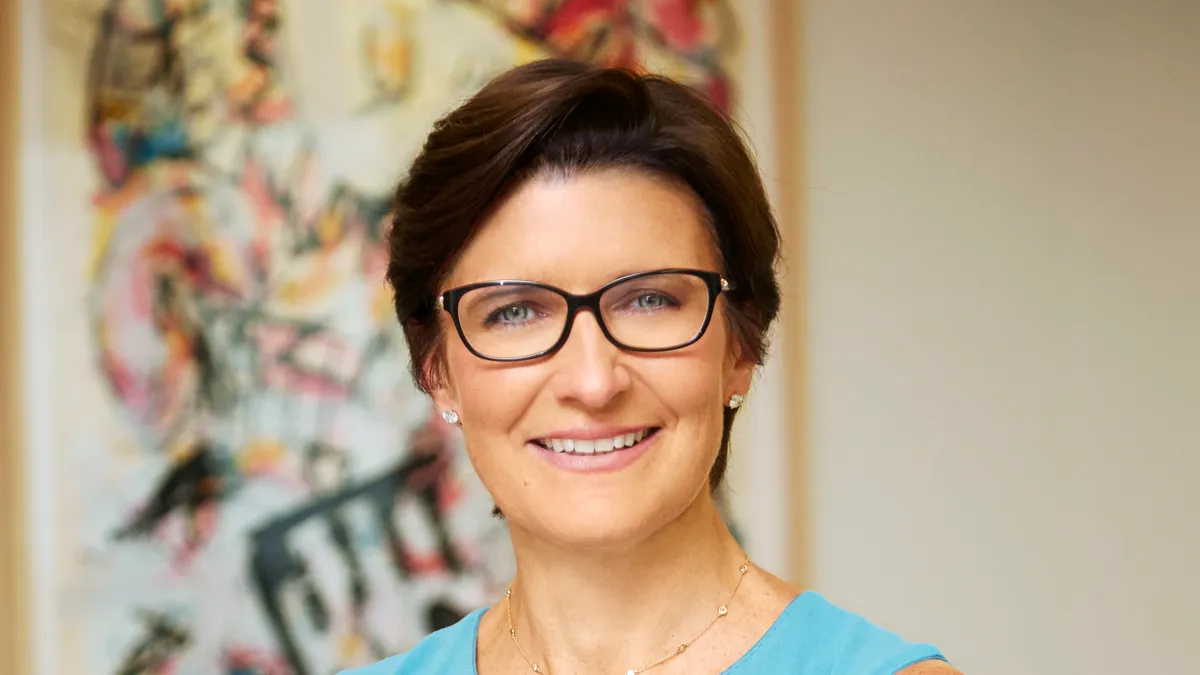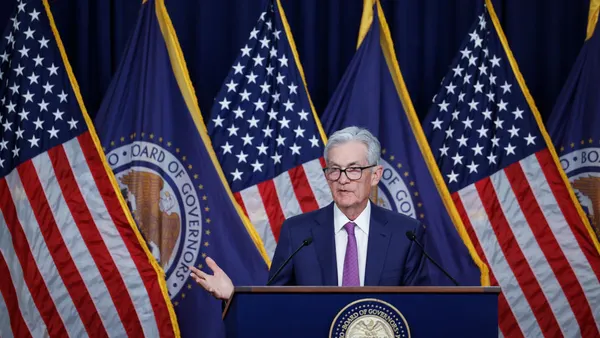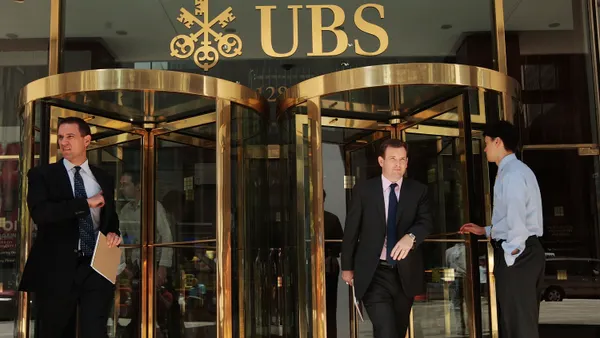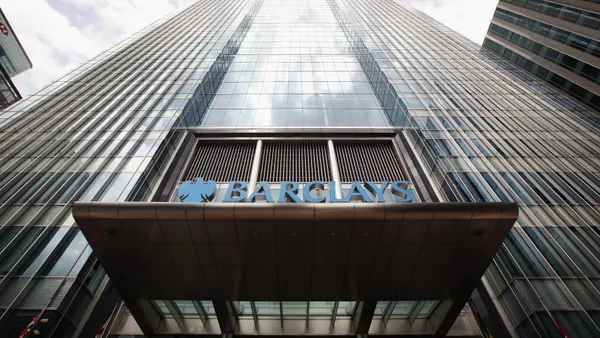Dive Brief:
- Most Citi employees will work a hybrid schedule that includes at least three days a week from the office and as many as two days remote after the COVID-19 pandemic subsides, CEO Jane Fraser wrote in a Monday afternoon internal memo.
- Fraser also banned internal video calls on Fridays — team meetings on that day will be audio-only — with the caveat that client meetings scheduled for Fridays would still have a video component.
- She encouraged staff to only schedule calls during what would be considered traditional working hours and designated May 28 — the Friday before Memorial Day in the U.S. — as a company holiday, Citi Reset Day.
Dive Insight:
With her memo, Fraser becomes the first CEO of a large, U.S.-based bank to embrace a hybrid schedule in writing. There will be exceptions to the three-and-two workday ratio, Fraser wrote. Some branch and data-center jobs, for example, can't be performed remotely. Other positions, such as those supporting contact centers, would be fully remote.
"This is not just a scheduling exercise; we will be thoughtful about when we ask colleagues to be in the office together," Fraser wrote in the memo, according to The Wall Street Journal. "The pandemic has stretched our capacity for innovative thinking, for solving problems. It has opened doors to new ways of working and shown that we are able to adapt to and even flourish amid adversity."
The memo comes less than a week after a slide deck circulated online detailing what a group of Goldman Sachs junior analysts saw as grueling expectations — 100-hour workweeks, with projects bleeding into Saturdays (a day the firm tries to keep sacred). Goldman CEO David Solomon in a Sunday voice note commended the analysts for flagging their concerns to their managers and committed anew to trying to keep the time frame from 9 p.m. Friday to 9 a.m. Sunday work-free.
Geoff Blades, a former Goldman Sachs employee who has since founded BLK Consulting, said long work hours were difficult but likely more bearable in a setting with a team of colleagues around. Still, he remained skeptical of banks' newfound boundaries.
"The problem with these solutions is that unless you actually change the supply and demand of work, the solutions don't change anything," he told Bloomberg. "You give people Saturday off and guess who's in the office on Saturday now? The senior banker, because the junior banker can't be there anymore."
The Goldman analysts, in their survey among themselves, rated their physical and mental health since beginning work at the bank and showed marked deterioration in both and a souring outlook for the future.
Fraser, too, touched on that in her Citi memo. "I know, from your feedback and my own experience, the blurring of lines between home and work and the relentlessness of the pandemic workday have taken a toll on our well-being," she wrote, according to Bloomberg and CNBC. "It's simply not sustainable.
"When our work regularly spills over into nights, very early mornings and weekends, it can prevent us from recharging fully, and that isn't good for you nor, ultimately, for Citi," she wrote.
Citi will begin inviting more workers back to its offices in July, expecting 30% of its North America employees to return over the summer, Bloomberg reported last week.
That's not quite as bullish as JPMorgan Chase and Goldman Sachs. The former is planning to resume in-person internships in June, The New York Times reported last week.
And the prospect of a second summer with remote interns has fueled Goldman's drive to set a midyear office-return date. "Getting them in to the office is the best way to get them connected to Goldman Sachs," Solomon told employees this month over Zoom, according to Reuters.
In her memo Monday, Fraser said Citi's interns would be remote again this summer but that the program would be restored to its full 10 weeks from last year's five.
Bank of America, too, committed last week to virtual summer internships this year.
In her memo, Fraser kept the human connection top of mind.
"We want our people to feel an attachment to our firm, a sense of pride about serving our clients and a duty to protect the financial system," she said, according to Bloomberg. "That only happens when we are together — and as we have all experienced, loneliness is not a great feeling."
She acknowledged a new normal is likely months away and that it may take time to fine-tune hybrid work schedules.
"Nothing should stop us from building a bank that wins, a bank that champions excellence and a bank with a soul," she wrote, according to the Financial Times.














